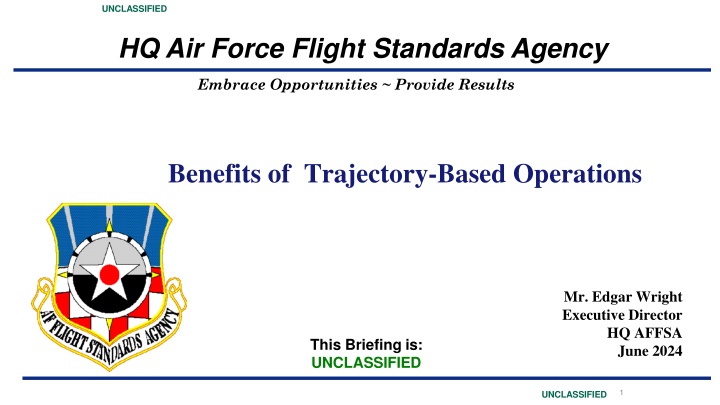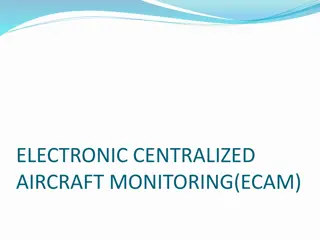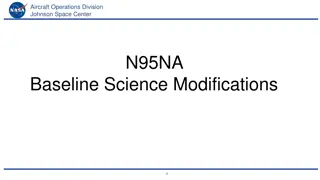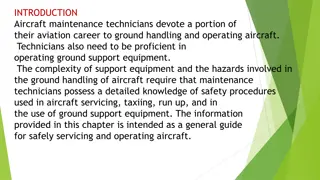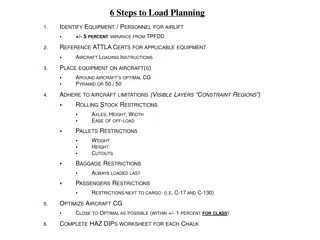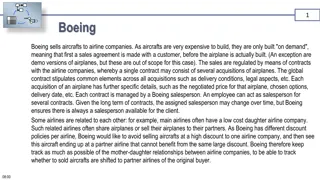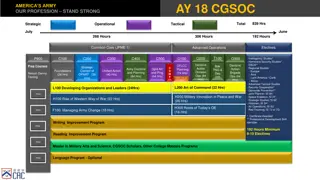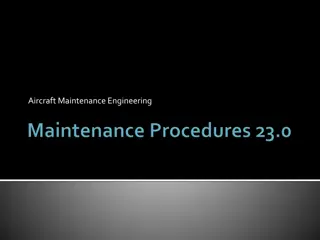Benefits of Trajectory-Based Operations for Military Aircraft
Trajectory-Based Operations (TBO) offer numerous benefits for military aircraft, including flexibility, efficiency, predictability, safety, and cost savings. TBO allows customized trajectories to meet unique operational requirements, reduces fuel consumption and emissions, enhances airspace usage, and improves safety by ensuring clear aircraft separation. Additionally, TBO can lead to significant cost savings for operators. Despite these advantages, some military operators may prioritize mission effectiveness over efficiency and prefer not to adopt TBO due to potential constraints on operational timing. Overall, TBO could be advantageous for certain military aircraft, especially those flying standard routes like air refueling and transport operations.
Download Presentation

Please find below an Image/Link to download the presentation.
The content on the website is provided AS IS for your information and personal use only. It may not be sold, licensed, or shared on other websites without obtaining consent from the author.If you encounter any issues during the download, it is possible that the publisher has removed the file from their server.
You are allowed to download the files provided on this website for personal or commercial use, subject to the condition that they are used lawfully. All files are the property of their respective owners.
The content on the website is provided AS IS for your information and personal use only. It may not be sold, licensed, or shared on other websites without obtaining consent from the author.
E N D
Presentation Transcript
UNCLASSIFIED HQ Air Force Flight Standards Agency Embrace Opportunities ~ Provide Results Benefits of Trajectory-Based Operations Mr. Edgar Wright Executive Director HQ AFFSA June 2024 This Briefing is: UNCLASSIFIED 1 UNCLASSIFIED
TBOBenefits Flexibility: State (military) aircraft have unique operational requirements; TBO allows for customized trajectories to accommodate these needs efficiently Efficiency: TBO allows for more direct routing, reducing fuel consumption and emissions while optimizing airspace usage Predictability: Providing a clear trajectory for each aircraft, TBO enhances predictability in ATM, reducing the likelihood of conflicts and delays 2
TBOBenefits Safety: Clear and predefined trajectories help ensure safe separation between aircraft, reducing the risk of conflicts or airspace infringements Cost Savings: With optimized routing and reduced delays, TBO can lead to cost savings for all aircraft operators in terms of fuel, maintenance, and overall operational expenses 3
Incentive Program Mission Execution Excellence Program (MEEP) Incentive-based, cultural change initiative focused on optimizing aviation fuel use in heavy aircraft Encourages energy efficient behaviors Assessed based on multiple metrics, including Accurate fuel planning Implementation of best practices Advancements in operational energy processes Projected to save approximately $80 million annually 4
Key Capabilities by Theme Advantageous Favorable
Summary TBO could be advantageous for certain military aircraft that fly standard routes (ex. air refueling and transport-type) fuel savings airspace scheduling flight operations deconflicting civil and military users Despite these potential benefits, military operators may prefer not to have their operations managed by TBO, as it involves timing dictated by flow control The military prioritizes mission effectiveness over efficiency, so there may be minimal benefit realized using TBO TBO is not designed with military needs in mind
